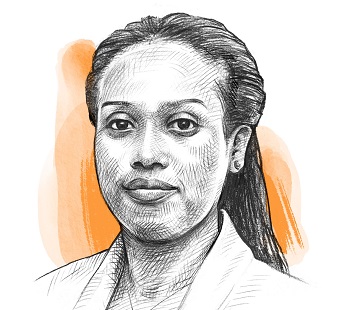AMRIC – Programme to Support the Mobilisation of Domestic Resources and Control Bodies in Guinea
Objective
-
€8mBUDGET
-
01/04/2023PROJECT START
-
48 monthsDURATION
Since 2010, the Republic of Guinea has been engaged in a progressive strengthening of its public institutions, with the aim of building a State governed by the rule of law. The transition authorities reaffirmed this priority in the transition Government’s Roadmap in December 2021, and confirmed and developed it in the Interim Transition Reference Programme (PRIT) for 2022-2025.
Expertise France has been supporting the tax and customs administration, as well as the control bodies, since September 2015, in the context of projects financed by the European Union (including PARAF and PACCAF between 2015 and 2021). Between 2019 and 2021, Agence Française de Développement mobilised a project support, preparation and monitoring facility for the deployment of technical assistance to the project to create the Mission to Support the Mobilisation of Internal Resources (MAMRI).
To find out more, consult the MAMRI project sheet
AMRIC: a project to increase the own resources of Guinean institutions
The overall objective of the Programme to Support the Mobilisation of Domestic Resources and Control Bodies (AMRIC) in Guinea is to enable the State and pilot local authorities to build their own resources for the implementation of public policies for the benefit of people.
More specifically, this project aims to improve the mobilisation of fiscal and non-fiscal resources by the main financial administrations, while strengthening the control of public finance management and transparency.
Capacity building for administrations
The activities implemented under the AMRIC project aim to build the capacities of Guinean institutions. At the completion of the project:
• The administration will be able to more effectively mobilise fiscal resources and define and manage fiscal policies
• The pilot local authorities targeted by the programme will be able to more effectively mobilise resources
• The customs administration will be able to more effectively mobilise resources and combat fraud
• The control bodies will have greater inspection capacities and civil society organisations will have a greater capacity to participate in the construction, monitoring and evaluation of the budgets of the State and the pilot municipalities targeted by the programme
Operating method and project management
A Memorandum of Understanding will be signed between Expertise France, the relevant representatives of the Republic of Guinea and AFD to set out the arrangements for the implementation of the project, and ensure that the agreement of the beneficiary is obtained at each stage. At the same time, the European Union will sign a financing agreement with the Ministry of Planning and International Cooperation for the activities to support the transition.
During the start-up phase, a monitoring-evaluation plan will be prepared with the support of an expert on the issue. It will subsequently be deployed by the experts mobilised for the project, with ad hoc methodological and technical assistance from Expertise France. An interim evaluation following the first two years of the programme implementation is planned and budgeted.


